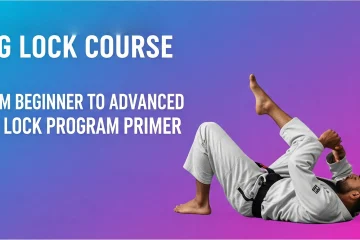The pandemic that enveloped our lives since March of 2020 has disrupted how we approach life in more ways than one, especially with how we approach our finances.
While there are multitudes of unfortunate stories and experiences many of us have gone through, I’d like to pivot and focus more on the positive spin in this blog post and how we can use this positive experience to solidify our financial future to allow us to continue enjoying these positives down the road.
The Year of Self-Discovery
While everyone was focused on the medical and financial tolls from day 1, COVID-19 actually spread something less obvious to the world, the personal reset we all seemed to have needed.
The uncertainties about our health, careers, job security, family ties, relationships and friendships, and even mundane day-to-day routines were all highlighted to us in a unique manner and it forced upon an unprecedented mass self-assessment of priorities.
With that moment of clarity, many have dusted off the bucket list of things they’d do “if I had the chance” and many of us picked up hobbies, skills, new routines, new careers, or even moved to a different living environment.
The collective amount of “I took the chance, if not now, when?” moments can be seen all over the world. From millennials leaving the city to older people opting to stay employed, to those who took the chance and saw COVID as an opportunity to grow their business, such shifts in mindsets often require a monumental push to get started.
While these huge steps in life are exciting, they’re also scary, especially financially.
Losing what you know that has been a constant in providing you income can be daunting and stressful, even more so if you have dependents to care for. However, I’d like to share some mindset shift tips of my own that I hope you can incorporate to lessen the burden and uncertainties without sacrificing too much that you second guess your life-changing decisions.
Accept that Money is Neutral
As the Hungarian mathematician George Polya said below, mathematics is the simple truth, and your finances are nothing but maths with a currency symbol attached. Your finances do not take sides, it’s neither rooting for you or making your life a challenge, it’s just a number.

Odds are high that you have the means to control your truth through small actions that will nudge you forward to a better relationship with your money. Don’t forget that the numbers are there to guide you and keep you honest of your situation so you can make the right decisions for your finances.
Track Your Finances Sustainably
There are multitudes of tips online on how to budget, the most popular for personal budgeting would be:
| Budget Style | Usually For: |
|---|---|
| “Say No” budget | Debt avoidance and reduction. |
| Zero-based Budget | Consistent tracking of income and expense (most common) |
| Paying Yourself Budget | Focus on savings and debt repayment |
| Envelope System budget | Pre-allocating bucket spending limits |
| 50/30/20 | Prioritizing “Needs” vs “Wants” |
I’ll leave the details for you to Google, but whichever one you choose, don’t go crazy trying to track every cent right away. If you haven’t been a disciplined tracker in the past, it’ll be very daunting for you to jump to the accountant-level of details and you’ll get dejected quite quickly.
There’s a good reason why many budget tracking apps are so hard to use for beginners, especially if you’re using various methods of spending (cash, debit, credit, cheques, loans, etc.) as the numbers will rarely reconcile.
The major expenses and income are pretty simple to track as they’re often recurring, but the newspaper purchase here, the snack purchase there, those can really throw your end-of-month tracking out of whack.
It might be best to get the habit of tracking the recurring major expenses on auto-pilot, then just add one or two semi-recurring categories to track religiously such as main meals, transport, subscriptions, and retail shopping. Down the road, you can be more disciplined and track the smaller, ad-hoc purchases.
The goal right now is getting the habit and system that works for you, accuracy of tracking isn’t as important at this point.
You don’t have to commit to a single budgeting style either, we’ll cover the bucketing method in the next section.
Bucket-ize Your Goals
Many first-time attempts in setting financial goal tends to be too absolute and single-minded. If you’re taking generic advice from Youtubers and authors that summarize a complex and personal endeavor, rarely will you find success doing so and you’ll most likely face so much roadblocks that you’ll give up quickly.
The notion that “you need to save for retirement NOW!” and realizing the final sum has to be 7-figures will be so daunting for anyone starting from a few hundred or even thousand bucks.
My advice is to bucket your goals and use different budgeting methods to meet those goals.

Let me give you an example.
Joey is a 32 year old chap working a day job that pays about the average salary for a skilled, office professional. He’s decided that he wants to start taking his finances seriously and asked some friends and family on where to start.
Joey’s boss who’s making 3x his salary starts telling him about investing in the stock market through funds because over long term, the odds of failure are relatively low and the compounding returns are generally exponentially better than savings accounts.
Joey’s older sister who’s nearing retirement tells him to “get his life together” and put a roof over his head and save for a house near where he grew up so he can be close to mom and dad.
Joey’s college bud shared his story about how he paid off his college loan in 3 years and he’s now saving up for a new car.
None of those advice are wrong, however, without understanding where Joey’s at right now and what he wants to do make all those suggestions unhelpful.
What should Joey do?

It turns out, Joe doesn’t have a lot of student loan debts but he wishes to just be able to put aside an emergency fund for himself as he wants to shift to a better career in 12 months but doing so would probably reduce his income short term. In 2-3 years time, he’s planning to move to a big city and hopefully land an overseas job opportunity.
Knowing those goals, you can see why most of the well-intentioned advice above would do no good.
Joey can bucketize his goal priorities based on timeline and odds of success. For example:
- Next 12-months: Save up 4 months worth of expenses as buffer so he can start seriously applying for roles in that new career. Knowing that he struggles with managing non-cash transactions, he chose the Envelope method of budgeting where he puts aside a fixed amount of money to spend and save everything else as soon as his pay arrives. This is a combination of two budgeting methods. Envelope and Pay Yourself. He figures that this will take him approximately 6 months of disciplined savings plus taking a couple of side hustle gigs to accelerate the process.
- +12 Months After: If Joey hits his 4-month buffer savings early, he can work on saving enough for the cost of the move to a new city. He knows that it’ll incur rental deposits, moving costs, and all the small expenses that will pile up for that move. He figured that he’ll need approximately 2 months worth of pay to cover those costs. Since he’ll already have an emergency buffer, he can be more aggressive with saving this “moving fund” as it’s not that much money. He’s decided to split his needs/wants aggresively so he opted to reduce his current full apartment rental expenses and rented out the spare room to a short-term renter, thereby cutting his major “needs” expense by 30%.
Those small goals will be a lot less daunting than trying to “save a million bucks for retirement” or even “coming up with the 20% downpayment for a house”.
Once you get that discipline, you’ll find that tracking your expenses and setting sequential bucket goals will keep you moving forward consistently.
Enjoy Without Guilt
On the subject of saving. It’s very easy to go overboard and suddently turn into Mr. Krabs as well.

In the name of “discipline of saving”, you start to penny pinch everything. While there’s nothing wrong and actually a great habit to not buy $15 avo toast breakfast daily or spend $10 a day on bubble tea, there’s no reason to forgo the occational treat to remind you that you’re making a living to live a happy life.
Yes, read that again.
You’re making a living to live happily
If you end up feeling guilty buying that piece of cake, or looking like a hobo because you don’t want to spend for a haircut, or start skipping important meet-ups with friends and family, what’s the point?
There’s this obsession and toxic of “sacrifice everything if you want a future” culture right now that it’s really counter-productive, if you think about it.
Stash some funds in your “enjoyment” envelope, keep the amount reasonable (you can’t buy 25c burgers anymore, right?) and enjoy it fully when you spend it. You deserve it!
Find Deeper Meaning in Your Spends
Related to the point above, you’ll also run the risk of taking “rewarding yourself” a bit too far once you get complacent. Be very mindful of your self-rationalization when it comes to increasing your “enjoyment budget”, particularly after a lengthy amount of time being “financially disciplined”.
You’ll find yourself rationalizing that you “deserve” that spa session or that weekend resort getaway, or that new phone that just came out that’s 99% identical to your current phone.
Don’t fall for that. Be honest with yourself.
Perhaps consider finding NEW ways to spend your current “enjoyment” budget instead. It takes discipline, and it’s a lot harder to get back on track once the rails fall off.
Celebrate Small Financial Wins
Just as you want to bucketize your goals, if you hit any one of those small buckets, celebrate and appreciate what you’ve done!
If you’ve never seen your bank balance hit 5 digits and you finally did it for your emergency funds? Screen cap it and print out a small pic and stick it in your wallet to make yourself proud (and control your urges to spend frivolously).
If you’ve finally paid off that student or car loan, celebrate and make a proclamation publicly if that makes you feel better and remind yourself to be mindful in taking future debts.
One thing you shouldn’t do is to brush that accomplishment aside and justify digging yourself a hole again by buying something that will derail you from your next goal.
You CAN DO IT!
You certainly can! Keep the momentum going by making small goals and frequent wins.

You’d be surprised how much mental stability and comfort it brings just by having a few months of emergency funds in the bank. Or how much more willing you’d be to take a leap to try something life-changing you’ve always wanted like a new career, business, or hobby if you know that you have that financial safety net.
Remember that money sides with no one. You can only make, save, and spend money anyway, just do that. Plan how you can make the most money that you can, save as much as you can, and be mindful of how you spend while keeping yourself happy, content, and generous.
Little steps, my friends. You can do it!



2 Comments
HICHAM EL AMRANI · 03/11/2021 at 11:17 PM
Well written Dave and really straight to the point! Love the video and pic examples that you selected!
David Tong · 04/11/2021 at 10:02 AM
Thanks bud.